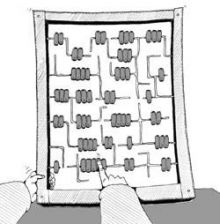The wave of tax reforms has now reached excise taxes. Representatives of the government, the Presidential Secretariat, and other departments, along with a group of businessmen met under the aegis of the Ukrainian National Committee at the International Trade Chamber in order to discuss the future of the excise label, eventually agreeing to Europeanize the state excise policy.
In effect, this is fairly consistent with the program to adapt Ukrainian laws to the EU’s, under which indirect taxation must be revised by 2007. This will be no easy task. According to Inna Dmytrenko, deputy chief of the Cabinet of Ministers’ Financial Policy Department, in revising excise taxes one has to keep in mind their numerous functions: they provide budget revenues, protect consumer interests, and, ideally, they should protect the interests of producers. This last point is controversial. According to Halyna Korenkova, general director of the beer producer Ukrpyvo, the beer industry has been increasing its output by 15% to 22% every year since independence, but the past two years have seen decelerating growth. She attributes this to a twofold increase in excise duty during this period, which happened despite the fact that there is virtually no bootleg beer on the market, according to her information.
Meanwhile, Ihor Chuhunov, director of the Financial Research Institute at the Finance Ministry, named these very increases among the steps that have already been taken to Europeanize Ukrainian excise taxation: introduction of excise warehouses and a mixed taxation system for tobacco, imposition of excise duties on petroleum products, higher excise duties for alcohol, and a revision of excise revenues. According to Chuhunov, the latter has special significance for Ukraine, where excise receipts (2% to 2.5% of the GDP) are second only to VAT receipts in the structure of budget revenues. Chuhunov recognizes that the reform of excise taxation still faces many difficulties, one of them being the need to shape an excise policy as such. Rates have to be raised to European levels, which will enable the government to increase budget revenues. At the same time, producers of excise goods should not view this as another attempt by the government to fill state coffers at their expense. Chuhunov thus proposes to introduce specific excise taxes for alcohol, tobacco, petroleum products, cars, and car parts. In his view, this would ensure additional budget receipts and restore justice, which is the duty of producers in his understanding: to provide compensation for the adverse impact of the above products on the population’s health. As he put it, even if producers react to higher excise taxes by raising prices for their products, this won’t be a tragedy: these products are aimed at wealthy consumers, who can afford to pay more. It would be wrong, however, to raise excise duties for products aimed at consumers of modest means. Meanwhile, there is a proposal to raise excise taxes for more expensive, higher-quality products in all categories. Therefore, if you belong to the least privileged social group and find a rare opportunity to treat your family to meat or yoghurt, instead of sausages of dubious origin, you will have to pay an extra amount to offset production costs resulting from a higher excise duty. What about small farmers, who periodically refuel their trucks and tractors?
The budget receipts will no doubt increase substantially, and salaries in the public sector, or perhaps even pensions, will be increased a notch higher. But will this offset price increments that will immediately follow excise duty increases? Big businesses will probably withstand such price hikes. Yet for medium and small businesses, which were promised presidential protection during the election campaign, this might prove to be if not the final nail in their coffin, then certainly a very close call. In reality, Europeanization of the excise policy has nothing to do with raising excise rates. According to Korenkova, throughout the EU small and medium businesses enjoy certain excise privileges. So far Ukraine has not adopted this European tradition.
At a roundtable discussion Natalia Hlinska, deputy director of the Department for the Administration of Excise Duty and Control over Production and Circulation of Excise Goods, voiced the State Tax Administrations’ position. According to her, creating an even playing field for all excise duty payers is the number-one priority for the tax authorities. Among the measures adopted by the tax authorities to make this tax more effective is a proposal to introduce new verification and registration labels, which has led to heated disputes among the country’s leaders. According to Oleksandr Popov, chief of the Foreign Policy Department of the Economic Service at the Presidential Secretariat, the government has already questioned the wisdom of introducing additional labels for alcohol and tobacco products, which would bear the batch number and product name. He believes that this would place a great burden on producers without generating any additional revenue. Yet the producers’ biggest concern is that the government has repeatedly failed to reach agreement on what to do with excise taxes. According to Dmytro Redko, corporate policy director at GT International Company Ukraine, all that tobacco producers want from the government is an effective policy and long-term projects. Meanwhile, Oleh Volychek, manager of government relations at Philip Morris, is certain that Ukrainian legislators must remember that EU rules form a stable and functional system, which means that they must adopt it in its entirety, not just its individual elements. Otherwise, our desire to move closer to Europe will only propel us farther away from it, much like what happened this past May, when changes were made to tobacco excise duties.







